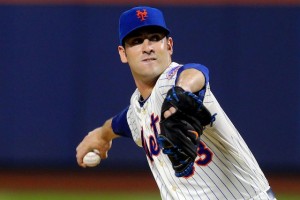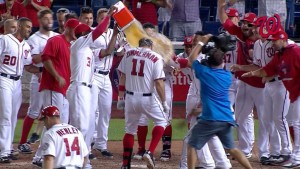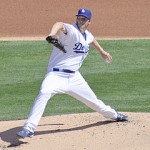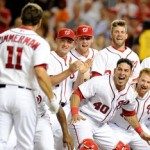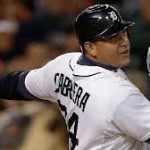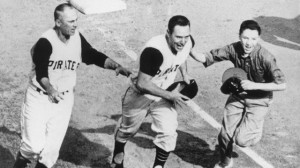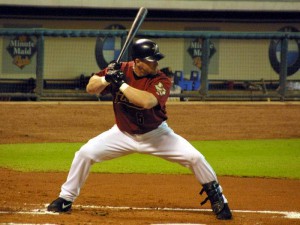Here’s a quick recap of the year in stories on this blog, to tie a bow on 2015. From each month, I’ve grabbed a couple of the more interesting or unique posts I did, with thoughts and follow-on.
(Here’s 2014’s review and 2013’s review as well, to see how far we have or have not evolved…)
Jan 2015:
- Holy Cow Scherzer! Nats make a statement by signing Scherzer for $210M; he does not disappoint with 2 no-hitters in his first season. We’ll conveniently forget his 6+ ERA during crunch time when the team was caught and surpassed in the standings by the eventual NL champion Mets.
- Like the Janssen signing: Yeah; this one didn’t work out as well.
Feb 2015
- Nationals Prospect Ranks historically: I reference this post more for one of my better accomplishments lately; turning all my historical prospect rankings into one big XLS. Here is that XLS in Google Drive, updated for the latest prospect rankings list I could find (BA’s year-end top 10 for the system).
- Qualifying Offers: Are they working? (2015 edition): Answer: doesn’t seem so. And so far in this off-season, we’re seeing similar results.
Mar 2015
- Brady Aiken has TJ surgery, shakes up draft boards: Aiken eventually goes 17th overall and loses millions versus where he was drafted the year prior. Hope he can come back from such an early TJ surgery.
- Nats Outfield … what happens next? Big discussion once it became clear that both Span and Werth were not making the 2015 opening day lineup healthy.
Apr 2015
- Forensicane’s campaign finally fulfilled; Rafael Martin called up & Cedeno axed: the title speaks for itself. Martin didn’t pitch much but certainly impressed with his debut. Cedeno’s DFA seemed deserved at the time, but he pitched very well for Tampa after catching on there.
- Cole up … why not Roark?: My prophetic post predicting Cole’s meltdown in Atlanta … of course I couldn’t predict the Dan Uggla homer and 13-12 game, which I immediately put into …
- Greatest (and worst) ever Nats games & Events; updated for 2014 events and April 2015 Atlanta game: I’ll be re-doing this post soon for all the stuff that happened the rest of 2015 and the weird off-season the team has had.
May 2015
- 2015 CWS Field of 64 announced; teams and analysis: one of many CWS posts, culminating in UVA winning in Omaha in late June.
- DC/MD/VA District High School Tournament Report: 2015 post-season: May is Prep HS tournament time. June has a ton of College and College World Series posts. I know I don’t get a lot of comments on my HS and College coverage, but I enjoy following both and try to keep interest in local baseball alive. FWIW, the area may very well have a first round pick in 2016 in Oakton HS’ Joe Rizzo. More to come in February when I start up Prep baseball 2016 posts.
June 2015
- First Look: Nats top 10 draftees from 2015 Rule-4 Draft: The culmination of the pre-draft work for the Nats; digging in and looking at who we’ll be following from a-far for the next few years.
- 2015 Draft Results: local player interest draft results. This post is the end result of months and months of work, digging into players with local ties in order to follow and eventually publish where they’re going.
- Is Ross making the Nats re-think their future rotation strategy? Yes, I think its safe to say he did. Is Turner/Ross for Souza/Ott the best trade Rizzo has ever done?
July 2015
- State of the Nats at the halfway point 2015: Where I was noticing that our offense was holding on by a thread but that we’d still win the division by 10 games. Yeah. Didn’t think the Mets would find the second coming of Babe Ruth in Yoenis Cespedes and they would catch fire they way they did.
- Nats 2015 Draft Wrap-up: Nice wrap-up of the whole draft class.
- Papelbon for Pivetta: good trade, bad karma? Another prophetic blog post title, eh?
Aug 2015
- The Nats post-All Star game gauntlet of opposing Starting Pitchers: It was tough, and the team didn’t do very well against them. They went 6-10 to open the 2nd half and went from 2 games up to 2 games back … and never made it up.
- Its make or break time; even more so than a week ago. Arbitrary endpoints, ranting about the Papelbon trade, ranting about the manager. Just a regular post about the 2015 Nats.
- Why exactly did the Nats call up Turner?? A question I keep asking to this day.
Sept 2015
- The Definition of Insanity… is apparently to keep watching the Nats play the Mets in September.
- I said “Call me when they Sweep Atlanta” … 115 comments on this post from the viewers, the season high by a lot.
Oct 2015
- GM for a day (or an off-season): what do you do to this team for 2016? A fun post to write. Some of it has even come true!
- Rotation Reviews of your 2015 Playoff Teams & WC Picks: One of the reasons the October post output is way up; I did a bunch of prediction picks. None of which were right of course.
- Chase Utley gets away with yet another dirty play; time to change the rules: F*ck Chase Utley, I hate that guy.
- 2015 Season Statistical Review of all Nats 2015 draft picks: A new feature I stumbled across that I’ll now make sure I find the time to do every year.
- Welcome Bud Black: haha; i wish I could un-post 🙂
Nov 2015
- My 2015 End-of-Season Awards Predictions: Only missed one BBWAA award this year.
- Three take the QO; but some still rolling the dice: First time for everything. Murphy’s QO ends up costing the Nats their 17th overall pick.
Dec 2015
- Operation Bullpen Makeover Status Report: So far, so good. Lots of new faces.
- Nationals/MLB Pitching Staff Year in Review; 2015: First in a series that is still being written as we speak.
- Murphy Signing: I guess I’m ok with it: A ringing endorsement!
Total posts for 2015 (including this one): 115. That’s down from 130 posts in 2014 and down significantly from 2013 (237 posts). Wow, how in the heck did I do 237 posts in 2013. That’s nearly a post for every weekday, all year. Including this post, i’ve published 923 total since the inception of the blog. When I hit 1000 i’ll do some cool retrospective or something. Should happen midway through 2016.
923 posts; that’s a lot of writing. I once calculated that a typical novel is between 90,000 and 100,000 words. Well, most of my posts are between 1000 and 2500 words … so that means I’m writing about a book every 50 posts. I’m in the wrong profession. Of course, i’m not sure who would ever read a book about some random IT guy’s musings about his local baseball team. 🙂
I feel like we have a solid group always commenting, no trolls. Very grateful for everyone who stops by and everyone who comments. I wonder how we can get more readers; should I do more publishing on twitter when I post? Probably. Now that natsinsider.com is gone, we may struggle to get the word out since Mark was my primary feeder site.
We generally have 20-30 comments on each post, which is cool. High comments on posts were 70 on a “Ladson Inbox”post in January 2015 and an astonishing 115 comments on the August “call me when we sweep Atlanta” post.
Happy New Year and thanks for reading in 2015.
